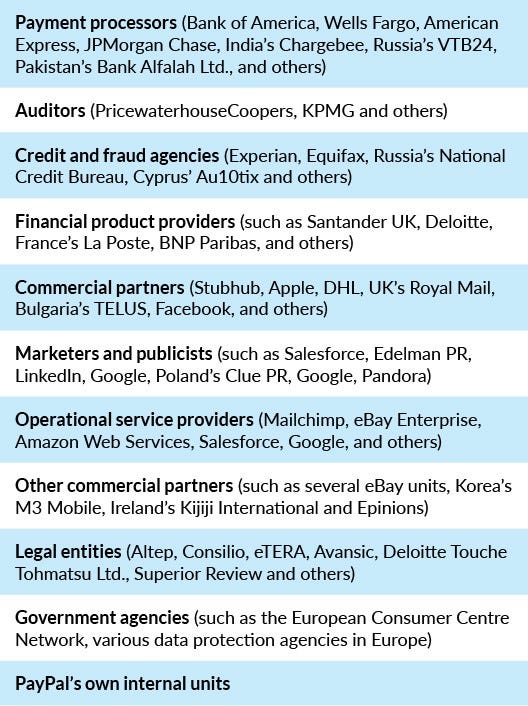[ad_1]

For where men conceal their ways from one another in darkness rather than light — there, no man will ever rightly gain either his due honour or office or the justice that is befitting ~ Socrates
Frankly, I have yet to see such indifference towards such an important topic.
So let’s outline some clear benefits of this dying privilege…before getting into how messed up things are.
- Privacy puts a limit on power. A direct consequence of “knowledge is power”. Others would find it difficult to exert power/influence over someone they know little to nothing about.
You’d probably struggle to find an Authoritarian state that has not encouraged the degradation of privacy for this very reason. - Privacy encourages the free-flow of ideas, good and bad. Particularly dissent.
A constant eye on what we, read, listen and say breeds an environment that encourages group programming and discourages thinking.
It is easy to fear speaking out against public madness when it’s consequences may lead to scapegoating and social rejection.In my opinion, without freedom of expression, we can not distinguish between those who choose consensus over truth (the cowardly) for those who mistake the two (the ignorant).
- Reputation management. No one is a finished product, in fact the best of us are often a product of repeated failures. Human beings are often poor judges of character, we judge in haste, without context, and through the bias of our own experiences/perspectives. Privacy is a fantastic protection against this poor habit. Perhaps this is why celebrities and politicians, people that struggle to have private lives, are so scared of breaking with mainstream narratives. It could easily reduce their carefully built/earned reputation to one stance on some stupid “issue”.
- Control over your life. This follows from the above. Without having knowledge of what data is being picked up from you, how it is being used, and the ability to correct/influence it…
They Breach & Barter.
Some fun facts:
Every browser search, every website you share cookies with, every video you watch, any interaction with advertisements (including how fast you skip/close them), where you Uber to and from, any social media interaction, (what you follow, ‘like’, ‘dislike’ and what you ignore) and what you buy online is sold, sorted and sold again.
A MASSIVE industry built on compartmentalising and collecting information, foolishly or reluctantly given up has entered the chat. Data scoured from countless sources are linked with a digital profile that is associated with you.
This is the business of YouTube, Facebook, Twitter … to provide a mostly a ‘free service’ whilst sustaining massive cashflows from selling your data. Other subscription based companies, would be forced to charge significantly more if not for the value of your data on scale, their data-mining aids them undercut the industries they replace.
Up until now, this is all probably peripheral knowledge… but how far this goes will shock you.
Acxiom (now rebranded as LiveRamp)
You probably haven’t heard of them.
Starting from using physical mailing address from phone books in 1969, by 2018 Acxiom found itself paying for the information of billions of people from a whole slew of sources.
The Business Model?
Matching the info to your virtual profile. This profile would be tailored and sold for companies seeking to complete background checks, targeted advertisement, to screen tenants, analyse consumers/establish contracts or for law enforcement. The larger the quantity or better yet, the more in-depth the information, the more it sells for.
To clarify Acxiom collected so much information, on so many people, in such depth, that they have been credited with:
…assessing whether we are good credit risks, desirable employees, reliable tenants, valuable customers — or deadbeats, shirkers, menaces, cheaters and ‘wastes of time’ ~ Danielle K. Citron & Frank Pasquale, The Scored Society.
That’s not all, if you’re going through a break up, your laptop screen shattered, you’re pregnant, dieting, depressed, planning a holiday or to propose to a partner, it’s easy for a private company to single you out as a customer.
Here’s Acxiom bragging:

As of 2018, they claimed to have 2.5 billion people ranked on 10,000 attributes with those above as an example.
LiveRamp
After the Cambridge Analytica scandal (where non-consensual information was taken from Facebook to use for political advertisement pre — an election), a light shone over the industry.
Acxiom was forced to rebrand the most crucial aspect of their business as LiveRamp, selling off their databases ‘elsewhere’ (their new partners).
LiveRamp now claims to care deeply about your privacy, providing some token GDPR services whilst steamrolling with their same identity matching tool that now enables other companies that own data, to use their AI powered services, ‘Identity Link’.
Essentially, LiveRamp seems to have off-boarded data ownership while maintaining strong links with the collectors who bought their databases.
Nothing Changed.
The process relies to a large extent on browser cookies. While they promise to anonymise all data, the business is constantly smeared for its low supervision, and some argue that anonymity is meaningless when a dataset contains characteristics including key distinguishing factors AND your location…some privacy.
LiveRamp ramps on, presumably with less regulatory scrutiny.
Typical.
Social Media Giants
Let’s not bother with this one. A recognition that you are the product of Facebook et al, which is why you can use it all for free is good enough. They are some of the most concentrated sources for information on any one person.
PayPal
Payments are being tracked all the time, and it’s not just the state that is privy to your data. Here is a sample of the types of companies that purchase data about you from PayPal.

It’s not just private companies, if you’ve ever watched hit MTV show Catfish, you’ll realise that people-search websites/software is now available to anyone with a bit of cash. This is an absolute goldmine for doxxers, abusers, fraudsters and stalkers.
The IRS and HMRC track transactions through Apple Pay, PayPal, Amazon to assess whether your spending is consistent with your declared income. If they have “reasonable suspicion” they can issue a third party notice to your bank to disclose data about your transaction history.
Politics
Truck loads of your personal data is flowing to political interests and consultants attempting to influence your vote. This was, dismissed as ‘conspiracy’ at the time, was made apparent by the infamous London based firm, Cambridge Analytica.
Reading on this topic, is frustrating.
If you’ve read much of my mumbles, this is usually where I start to mention the silver lining, or resistance. The skeleton key that messes up their plans or propose some crypto base solution.
To be blunt, this battle for greater privacy is overwhelmingly one-sided.
But…
Browser/Website activity
An ad-blocker and privacy browser similar to DuckDuckGo (though they have been naughty during the Russian invasion) eliminates a chunk of data available for third party sales by tackling attempts by websites, to sell the information that you visited a page on their website. The data is still stored and sold, just made harder to attribute to you. This should annoy the industry a lot, it’s Acxiom’s main source of intel.
VPNs
They spoof your location and encrypt your data. A brute force attack on most VPN encryptions should theoretically take millions of years. Though, unfortunately, hackers be hackers.
Anyways, VPNs need two things to be taken seriously.
A Kill-Switch and a No-Log policy. The first is easy to verify. The latter — which annoyingly is the most important feature — is annoyingly taken on faith.
I’ll explain what these mean:
A Kill Switch essentially disconnects your Wi-Fi connection as you disconnect from the VPN. This means disconnecting doesn’t automatically leave you vulnerable to be tracked. Picture a Knight being teleported off the battle field, when taking off some armour mid-crusade.
No-Logging, refers to none of your residual data (that is encrypted and diverted from harvesting) being stored on the VPN database. So no one can request for it and no one can bully the VPN service for it, since they don’t have it.
Sadly it’s impossible to verify. Many VPNs kick privacy out a back door to not compromise on network speed, knowing their customers won’t clock on.
Others claim to be no-log and committed to privacy, yet offer no real ways of verification.
Those free VPNs sell your data giving similar commitments that can be found on LiveRamp’s privacy policy. Essentially, many VPNs are selling snake oil for insane amounts in passive income.
I’ll stay alert and write a piece about any projects I think plug these shortfalls. I’ve caught wind of at least one, but won’t disclose anything about it until their model proves practical.
Transactions and payments
Visa, Mastercard, PayPal any online purchase, any bank account activity and transfer, as mentioned earlier can be used to track your location and sell some of your residual data. With crypto adoption so far off the agenda, I can’t in good faith propose privacy coins as a solution to this problem. There is none outside of dealing in cash. Though cash likely won’t exist in 50 years. In China (the developed part), good luck paying for anything without WeChat or Alipay.
A number of countries are looking to implement a central bank digital currency. True to it’s namesake, it will be issued by governments, and allow for:
- Direct access to your spending habits, for the state.
- The power to invalidate, through AI, suspicious payments, by the state.
“Suspicious payments” in Canada was interpreted as supporting a protest via GoFundMe just a few months ago. In the East, a poor credit score will cause transactions to fail when using public transport, travelling or paying for hotels.
I suspect CBDCs will be sold to the public as some cure to the financial instability that could have been prevented, and may have been deliberately instigated. Nothing new, and like always people will vote for it.
What do I mean?
Bribed to the hilt with a small share of the “free money” stolen by inflation, the average person will vote their way to economic dependence & a soft social-credit system .
That’s my instinct… it is what it is.
Conclusion
Privacy allows room for freedom, growth, and a smaller requirement of courage to speak truth to power.
I have faith that there will be some resistance to data breaching from Web3.
For the meantime…we’re still fucked 🙂
New to trading? Try crypto trading bots or copy trading
[ad_2]
Source link
